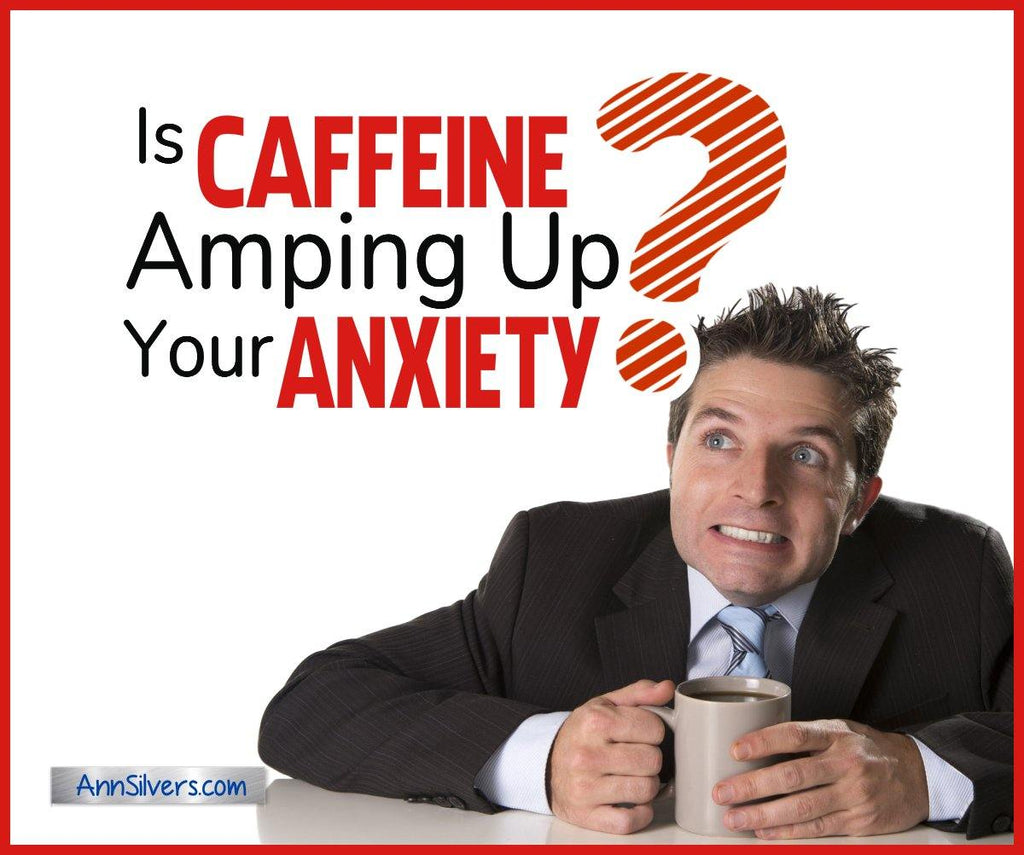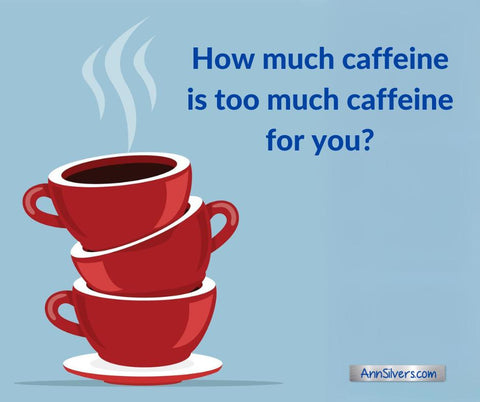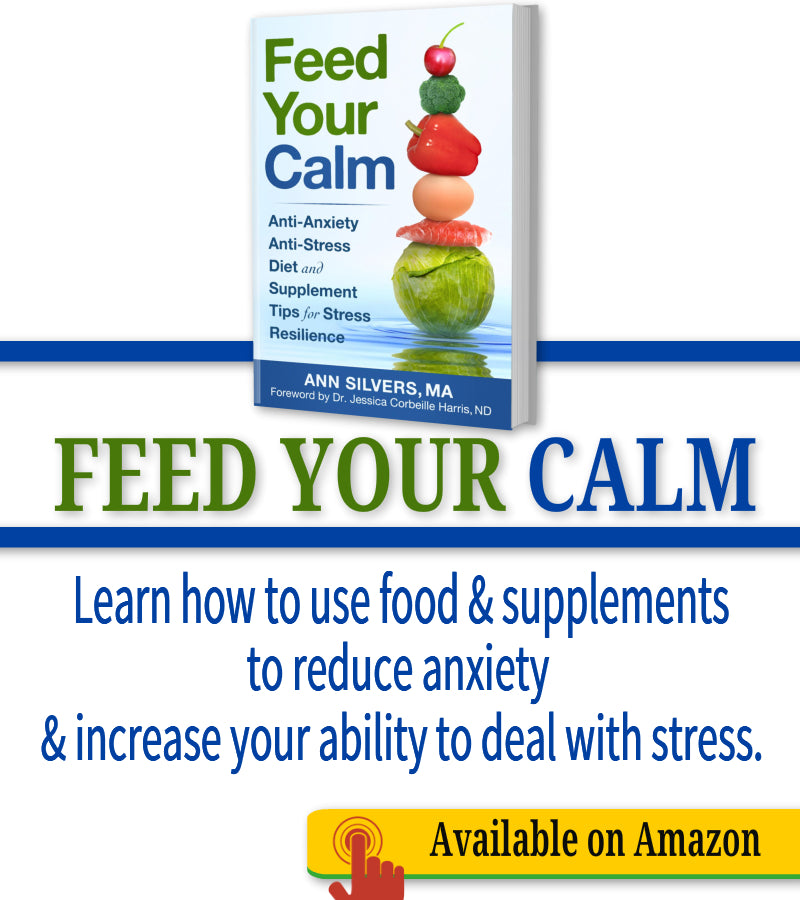Is Caffeine Amping up Your Anxiety?

Caffeine is a stimulant. For many people, eating or drinking caffeine when they are anxious, or have a tendency to get anxious, is like throwing oil on a fire. It can make the stress and anxiety much worse, much bigger.
A young man I know ended up in the emergency room because of a panic attack brought on by drinking canned energy drinks. When he stopped drinking the highly caffeinated drinks, his panic never returned. (Panic is intense anxiety.)
People react differently to caffeine depending on many factors, including relative stressors, physical biochemistry, whether they are taking medications that react with caffeine, their age, and their genetics. You may be more sensitive to caffeine than someone else, and you may be more sensitive to it at different times in your life.
Caffeine and anxiety are a bad mix. I've had many anxiety clients experience improvement by cutting back on or eliminating caffeine.
If you have anxiety and/or trouble sleeping, cutting back or eliminating caffeine is a great experiment to run to see if it makes a difference.
What's in This Post
| Anxiety-Related Negative Side Effects of Coffee and Caffeine |
| Caffeine and Anxiety Research |
| Caffeine Levels in Beverages and Medications |
| Sleep, Insomnia, and Coffee or Other Caffeine Sources |
| How Long Do the Effects of Caffeine Last? |
| 15 Caffeine Sources |
| Does Decaf Have Caffeine? |
| 8 Ways to Cut Back on Caffeine |
| Anxiety Help Books and Recordings |
Anxiety-Related Negative Side Effects of Coffee and Caffeine
As I mentioned earlier, caffeine is a stimulant.
Caffeine has the potential of amping up anxiety in at least 2 biochemical ways:
-
Caffeine triggers the adrenal gland’s fight-or-flight hormones. (The same hormones that are triggered by fear, anxiety, and stress.)
-
Caffeine inhibits the calming neurotransmitter, GABA.
Those biochemical changes, and potentially other physical effects of caffeine, can ramp up an “on-edge” feeling and get in the way of relaxation.
Caffeine and Anxiety Research

Sensitivity to caffeine differs between individuals and sensitivity to caffeine can vary within an individual across their lifespan. (I talk about this more in the How Long Do the Effects of Caffeine Last? section below.)
Research from as early as 1987 shows that caffeine can increase the biological stress response to psychological stressors. One example is an article from the Health Psychology journal: Caffeine enhances the physiological response to occupational stress in medical students.
A Jan 2024 article, Caffeine Intake and Anxiety: A Meta-Analysis, that appeared in the Frontiers of Psychology journal concluded that:
"The results confirm that caffeine intake is associated with an elevated risk of anxiety in healthy individuals without psychiatric disorders, especially when the intake dose is greater than 400 mg."
Caffeine Levels in Beverages and Medications
The research project quoted above mentioned 400 mg of caffeine. For context, here are some caffeine levels:
-
20-oz Venti Starbucks Coffee, Pike Place Roast: 410 mg
-
8-oz (small cup) regular coffee: 100 mg
-
24 ounces (4 small cups or 2 large mugs) of regular coffee: 400 mg
-
16-oz Bang energy drink: 300 mg
-
Two capsules of Hydroxycut Hardcore: 270 mg
-
12-oz Pepsi: 35 mg
Do NOT conclude that as long as you don't do a 400-mg caffeine-jolt, you're in an anxiety safe zone with your caffeine intake. The Caffeine Intake and Anxiety: A Meta-Analysis research project looked at "healthy individuals without psychiatric disorders" and still found that caffeine intake created an "elevated risk of anxiety" in that population, even below 400 mg.
If you consume caffeine and have anxiety, begin to monitor yourself for the potential that caffeine is amping up your stress level.
Sleep, Insomnia, and Coffee or Other Caffeine Sources
The negative physical effects of coffee and other sources of caffeine already mentioned have the potential of getting in the way of your body and mind relaxing for sleep.
Additionally, there is evidence that caffeine delays the release of melatonin: the hormone that tells your body to go to sleep.
Even if you get to sleep without trouble, caffeine can still ruin your sleep.
Caffeine can:
- make it difficult to fall asleep,
- make you restless during sleep,
- keep you stuck in a light stage of sleep,
- interrupt your sleep, or
- shorten the length of sleep by waking you up early.
| For more on insomnia and sleep, check out these posts: What is a Normal Sleep Pattern? What is Insomnia? and Insomnia Natural Remedies |

How Long Do the Effects of Caffeine Last?
The half-life for caffeine is around five hours.
That means that it takes five hours for half of the caffeine consumed to be eliminated.
Notice that it’s only half gone in five hours.
Caffeine that you consumed ten hours ago can be wrecking your sleep.
It’s also noteworthy that some things can extend caffeine’s half-life, such as:
- older age,
- obesity,
- smoking,
- pregnancy,
- impaired liver function, and
- particular illnesses and medications.
So—you might react differently to caffeine at different times in your life.
The coffee you had this morning can be keeping you awake tonight.
In their 2002 journal article, Caffeine Affects Cardiovascular and Neuroendocrine Activation at Work and Home, Duke University's James Lane and other researchers describe the longevity of caffeine's impact:
"The persistence of caffeine effects on blood pressure and epinephrine [adrenalin] long after ingestion is noteworthy. The second and final 250-mg dose of caffeine, equivalent to two cups of coffee, was administered at lunchtime. However, blood pressures and epinephrine [adrenalin] levels remained significantly higher at home until recording concluded at bedtime, 10 or more hours after ingestion."
15 Caffeine Sources
The most obvious sources of caffeine are coffee, tea, and cola, but they aren’t the only sources. Some foods that have caffeine, like orange soda, may sneak up on you.
When I was attending college, I worked as the newspaper editor for a couple of quarters. Every two weeks, I’d go through a cycle of less and less sleep in order to get the paper out. I was amazed at my ability to stay up all night the night before each deadline. Finally, I thought to take a look at the orange soda I was inexplicably drawn to and was uncharacteristically drinking on those nights, and I realized it had caffeine! That was eye-opening! (Pun intended.)
There is caffeine in:
-
Coffee
-
Black, white, and green tea
-
Chai tea
-
Iced tea
-
Kombucha
-
Yerba mate
-
Guarana
-
Cola
-
Other sodas like Sunkist Orange Soda, Mountain Dew, Barq’s Root Beer, and A&W Cream Soda
-
Chocolate
-
“Energy” drinks like Red Bull, Monster, and Crystal Light Energy
-
Some nootropic supplements and many workout supplements
-
Some pain medications and diet pills
-
Just about any processed food, from granola bars to beef jerky, that has “Bang,” “Boost,” “Energy,” or similar words in their name
-
Decaffeinated coffee and tea (I talk more about decaffeinated drinks in a minute)
If you want to monitor your caffeine intake, start checking food and beverage labels to see if there are caffeine or caffeine sources on the ingredients list. Sometimes the list won’t include the word caffeine but will say something like green tea extract or guarana.
There are some great websites to help you figure out how much caffeine is in particular foods, such as Caffeine Informer.
Does Decaf Have Caffeine?
The simple answer to the question "Does decaf have caffeine?" is "Yes."
Decaffeinated is not the same thing as caffeine-free.
Caffeine-free has no caffeine. Decaffeinated coffee and tea still have caffeine in them. They have way less caffeine than their normal counterparts, but they still have caffeine. I know for myself that I can’t handle a decaffeinated latte from Starbucks any time of day, and I have to avoid even decaffeinated tea late in the day so that my sleep isn’t disturbed.
Products that are caffeine-free, like caffeine-free herbal teas, don’t start out with caffeine, and they don’t have caffeine added.
Decaffeinated products have to go through a process of caffeine removal because they contain caffeine in their natural state. There are several different ways to remove caffeine from coffee and tea, but none of the methods remove all of the caffeine. By law, at least 97% of the caffeine must be removed before something can be called decaffeinated, but that still leaves around 3% of the caffeine. How much caffeine still remains in a particular product depends on how much it started with and the decaffeinating process used.
The most common decaffeination methods involve a solvent: either methylene chloride or ethyl acetate. Ethyl acetate is found naturally in small amounts in fruit, so coffee or tea decaffeinated with ethyl acetate may be labeled naturally decaffeinated.
There are two other decaffeination methods that do not use solvents.
-
There is a water process, the most common of which is the Swiss Water Method.
-
And there is a relatively new solvent-free decaffeinating process that uses CO2. The Swiss Water Method is usually used for organic coffee. The CO2 method is often used for very large quantities such as decaf for grocery store chains.
Personally, I think that it's better to look for products that mention they use Swiss Water Method or the CO2 process.
8 Ways to Cut Back on Caffeine
Research has linked anxiety to caffeine consumption and also to caffeine withdrawal, so if you have a big caffeine habit, quitting abruptly may not be the way to go.
There are many potential ways of cutting down on caffeine, including:
-
Quit entirely
-
Abruptly or gradually move back the time of day you stop consuming caffeine
-
Eliminate some, but not all, of your sources of caffeine
-
Consume smaller portions
-
Change all or some of your drinks to decaffeinated versions
-
Mix in decaffeinated portions (half caf, half decaf)
-
Replace caffeine beverages with naturally caffeine-free alternatives, like herbal teas instead of black tea, or chicory root “coffee” or dandelion root tea instead of coffee
-
Drink water instead (your body will thank you)

Anxiety Help Books and Recordings
For more info and help for anxiety, check out these products I created to help you overcome anxiety and experience stress relief:
Help for Anxiety and Stress Relief Hypnosis Recordings
Discover Calm, Anti-Anxiety Hypnosis
Release and Refresh, Hypnosis for letting go
There's a more complete list of my anti-anxiety resources on this blog post: Anxiety and Stress Resilience Worksheets, Books, and Recordings.
- Ann Silvers












Comments 0